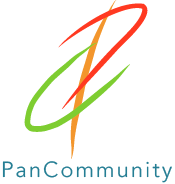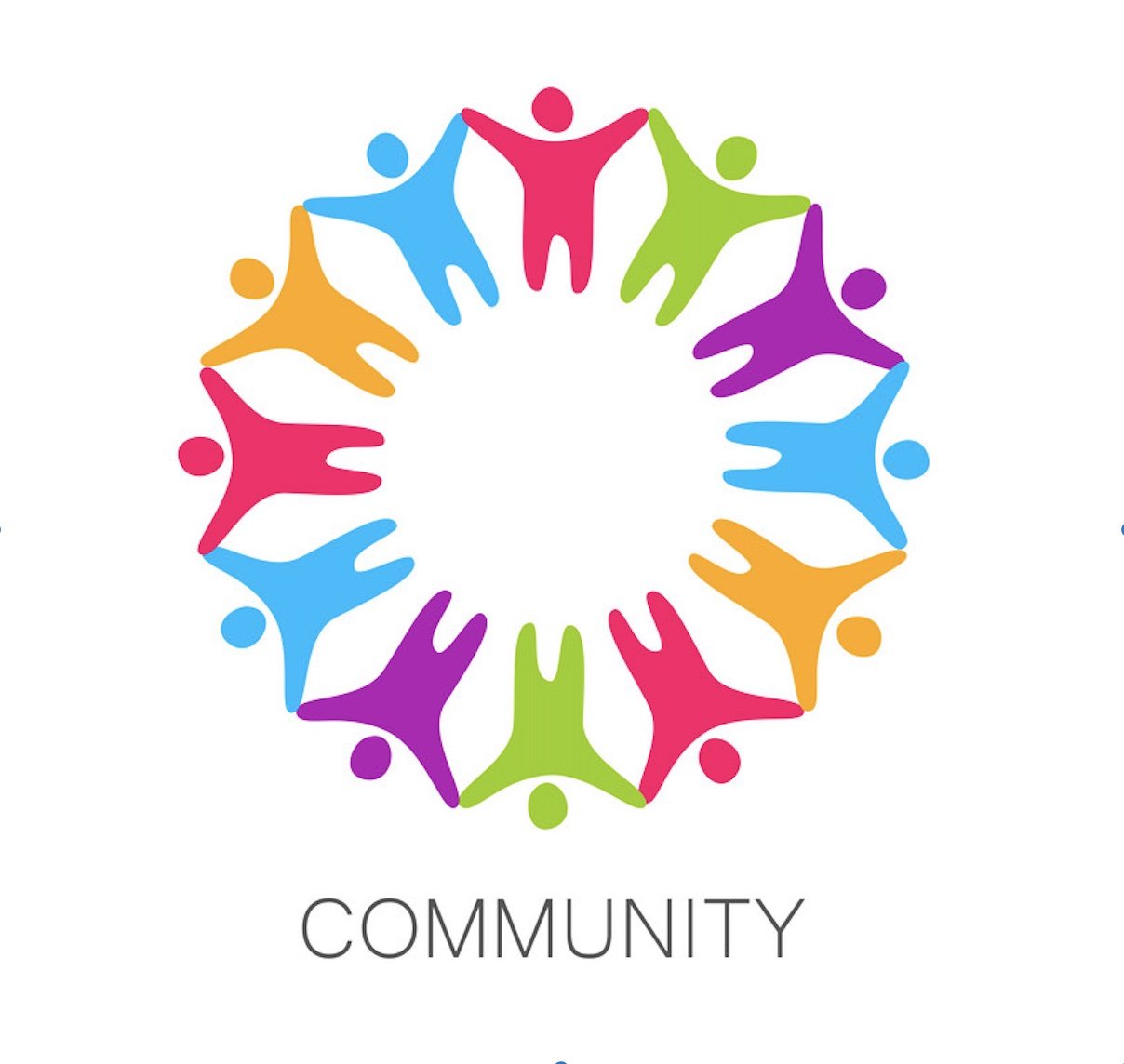Workshop: Community
February 28 2023 (Online) - 8:00am/5pm MST
The global-scale response to the COVID-19 pandemic triggered drastic measures including economic shutdowns, travel bans, stay-home orders, and even complete lockdowns of entire cities, regions, and countries. The need to effectively produce and deliver PPE, testing and vaccines has affected different communities of stakeholders in different ways, requiring coordination at family/business units, counties/states to federal level entities. This project, therefore, considers communities at local, federal, and international (US and Japan) scales and investigate impact of testing, preventative measures and vaccines, when used in combination, to improve community and inter-agency response at the different scales.
Community partners are, therefore, critical in shaping our research and education directions: they serve as "hubs" in the PanCommunity network to collectively, help
identify the needs of communities, including under-represented groups, at different scales,
define technology scenarios, provide testbeds for the technology products, and potentially share data and use scenarios,
provide feedback on technology implementation of research projects as well as social and policy issues, and
identify results to be transferred to community stakeholders and to recommend technology transfer mechanisms.
Every community takes a different personality determined by the goals and participants. This workshop will set the charter for the community outreach efforts, determine critical attributes, and will focus on, among others, the following questions and challenges:
Who are the key academic, industrial, governmental, and NGO stakeholders and what are the best mechanisms to engage them?
What are the key services we can provide to the community to provide for maximal impact?
How should the community network be expanded?
(Bios of the Speakers and the Abstracts)
Workshop Agenda (all times are MST)
(7:30am- 8:00am) Connecting in and tech check
(8:00am-8:10am) Welcome (Introductions, Outline, and Goals)[Video]
Project PIs
David Corman, PhD
Program Director, NSF Smart and Connected Communities
(8:10am -9:10am) Keynote Talk — “Engaging community planners with simple tools: The basics.” (Session Chair: Gerardo Chowell-Puente)[Video]
Martin I. Meltzer, PhD
Lead, Health Economics and Modeling Unit (HEMU) at Centers for Disease Control and Prevention)
Dr. Martin I. Meltzer is the Lead of the Health Economics and Modeling Unit (HEMU), and a Distinguished Consultant in the Division of Preparedness and Emerging Infections, CDC in Atlanta, GA. He received his undergraduate degree from the University of Zimbabwe in 1982, and Masters and a Doctorate in Applied Economics from Cornell University, NY, in 1987 and 1990, respectively. From 1990 to mid-1995, he was on the faculty at the College of Veterinary Medicine at the University of Florida. In 1995, he moved to CDC, where he was in the first class of Prevention Effectiveness (health economists) Fellows. He led the modeling teams supporting CDC’s response to the 2009 H1N1 influenza pandemic. Other responses in which he lead the modeling activities include estimating the residual risk associated with the 2012 contaminated steroid injectable products that caused fungal meningitis among patients, Ebola outbreaks in West Africa (2014-16) and the Democratic Republic of the Congo (2018-19), the Zika epidemic, the COVID Response, and the current Ebola outbreak in Uganda. Examples of his research include estimating the impact of the 2009 influenza pandemic, the modeling of potential responses to smallpox as a bioterrorist weapon and assessing the economics of controlling diseases such as rabies, dengue, hepatitis A, meningitis, Lyme, and malaria. Dr. Meltzer has published approximately 300 publications, including over 180 papers in peer-reviewed scientific journals and more than 60 software tools. These tools include FluAid, FluSurge and FluWorkLoss, COVIDSurge, COVIDTracer and COVIDTracer Advanced. Collectively, these tools have been downloaded more than 200,000 times and have been used by local, state, national and international public health agencies, with jurisdictions exceeding a total of 1 billion persons. He also, in 2022, led the team that developed the COVID Quarantine and Isolation Calculator, which has had over 7 million unique visitors in 6 months on CDC’s webpages. He is an associate editor for Emerging Infectious Diseases. He also supervises several post-doctoral health economists at CDC.
(9:10am-9:15am) Break
(9:15am-10:15am) Session #1: Community Experiences at Different Scales (Session Chair: Giulia Pedrielli)
Hiroshi Nishura, PhD - “Spotting High-Risk Events for COVID-19 Transmission: Estimating the Risk of Clustering Using Nationwide Data”
Professor of Hygiene, Kyoto University
Adviser for the Japanese Government during COVID-19 pandemic
Timothy Lant, PhD [Video]
Lead, COVID-19 modeling task force, Modeling Emerging Threats for Arizona (METAz)
Stephanie Deitrick, PhD - “It's a matter of scale: the importance of location in local government pandemic response” [Video]
Lead, Enterprise GIS & Data Analytics, City of Tempe, AZ
(10:15am- 11:10am) Break-out session #1
Who are the key academic, industrial, governmental, and NGO stakeholders and what are the best mechanisms to engage them?
How should the community network be expanded?
Moderator: Giulia Pedrielli, PhD
Associate Professor of Industrial Engineering, Arizona State University
Co-PI, PIPP Phase I: Computational Foundations for Bio-social Modeling of Unseen Pandemics
(11:10am-11:15am) Break
(11:15am-12:15am) Session #2: Technology Talks (Session Chair: Gabriel Rainisch, Division of Preparedness and Emerging Infections, CDC)
Nina Fefferman, PhD - “A Template for Responsive Translational Pandemic Science” [Video]
Professor of Ecology and Environmental Biology, University of Tennessee at Knoxville
Lead PI, NSF PIPP Phase 1: Predicting Emergence in Multidisciplinary Pandemic Tipping-points (PREEMPT)
Giulia Pedrielli, PhD [Video]
Associate Professor of Industrial Engineering, Arizona State University
Co-PI, PIPP Phase I: Computational Foundations for Bio-social Modeling of Unseen Pandemics
Vel Murugan, PhD [Video]
Assoc. Research Director, ASU Biodesign Center for Personalized Diagnostics and ASU Biodesign Clinical Testing Laboratory
Chun Hai (Isaac) Fung, PhD - “Optimization of COVID-19 Vaccination Strategies, Ghana” [Video]
Assoc. Prof. of Epidemiology, Georgia Southern University
(12:15pm- 1:30pm) Lunch Break
(1:30pm-2:30pm) Session #3: Technology and Policy Talks (Session Chair: K. Selcuk Candan)
Hyoshin Kim, PhD - “Working Together to Predict, Prepare, Prevent, and Respond Better to the Next Pandemic Emergency with Data & Technology, Policies, and People” [Video]
Senior Research Scientist, Health Analytics, Battelle
Angel Desai, MD, MPH [Video]
Assistant Professor, Division of Infectious Disease, UC Davis
Kieran Sharkey, PhD - “Effectiveness of the Oxford-AstraZeneca and Pfizer-BioNTech Vaccines for Reducing Susceptibility to the Delta Variant of SARS-CoV-2” [Video]
Professor of Mathematics, University of Liverpool
Investigator, EcoGamesPlus ITN: Evolutionary games and population dynamics: from theory to applications
Niu Gao, PhD - “The Impact of COVID-19 on Science Education: Early Evidence from California” [Video]
Senior fellow at the Public Policy Institute of California
PI, A Researcher-Practitioner Partnership to Improve Pandemic Recovery Efforts in California
(2:30pm-3:15pm) Breakout session #2:
What are the key services and technologies we can provide to the community to provide for maximal impact?
Moderator: K. Selçuk Candan, PhD [Intro video]
Professor of Computer Science and Engineering, ASU
Director, Center for Assured and Scalable Data Engineering (CASCADE)
PI, SCC-IRG JST: PanCommunity: Leveraging Data and Models for Understanding and Improving Community Response in Pandemics
(3:15pm- 3:25pm) Break
(3:25pm-4:30pm) Panel
Moderator: Gerardo Chowell-Puente, PhD
Professor of Epidemiology and Biostatistics, School of Public Health, Georgia State University
Nina Fefferman, PhD
Professor of Ecology and Environmental Biology, University of Tennessee at Knoxville
Lead PI, NSF PIPP Phase 1: Predicting Emergence in Multidisciplinary Pandemic Tipping-points (PREEMPT)
Louiqa Raschid, PhD
Professor, University of Maryland at College Park
Lead PI, NSF PIPP Phase 1: Evaluating the Effectiveness of Messaging and Modeling during Pandemics (PandEval)
Timothy Lant, PhD
Lead, COVID-19 modeling task force, Modeling Emerging Threats for Arizona (METAz)
Lead, Enterprise GIS & Data Analytics, City of Tempe, AZ
Pavan Turaga, PhD
PI, PIPP Phase I: Computational Foundations for Bio-social Modeling of Unseen Pandemics
(4:30pm-4:40pm) Reports from the breakout sessions
(4:40pm-4:45pm) Closing of the day

